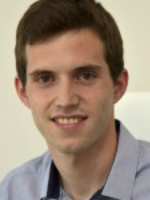Markus Brunner

Markus Brunner
Markus Brunner is currently obtaining a masters degree in Management and Information Technology. Before coming to St Andrews, Markus studied Business Informatics at the Vienna University of Technology in Vienna and worked for two years as a technical consultant for a software company. His interest in Web Development and Design motivated him to start a business with the aim of delivering his service on a professional level. For his dissertation within the SACHI research group Markus is supervised by Professor Aaron Quigley. You can contact Markus at mb246@st-andrews.ac.uk.
Dissertation working title: Web-based Carbon Calculator
Climate change is the most significant challenge that human societies have had to face. Increasing greenhouse gas emissions from human activities are altering the world’s climate (IPPC 2007), which are already having significant implications for human society (Stern 2007). mportantly, human induced greenhouse gas emissions are enhancing positive feedbacks in global climate systems which reinforce
climate change. This could push the earth system across important tipping points, resulting in runaway climate change. Predictions of the extent to which greenhouse gases need to be reduced to avoid runaway climate change vary. Scientists generally agree that substantial reductions are needed and that these reductions need to be achieved quickly (IPPC 2007). Implementing these reductions is not
straightforward. While some reductions can be delivered through technological advances, it is ultimately individual human consumption patterns (food, transport, energy etc.) and the types of technologies used by people that generate the greenhouse emissions in the first place. This application will help people understand how to achieve changes in human behaviour in ways that either reduce emissions directly, such as by reducing energy consumption through changes in lifestyles, or by encouraging them to switch to greener technologies that produce less emissions.

